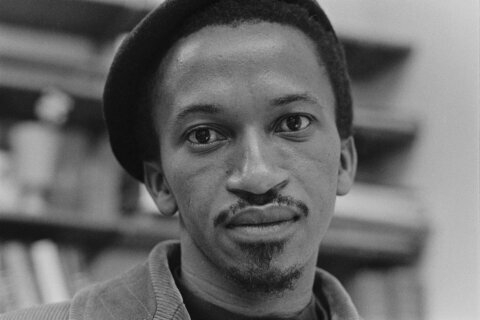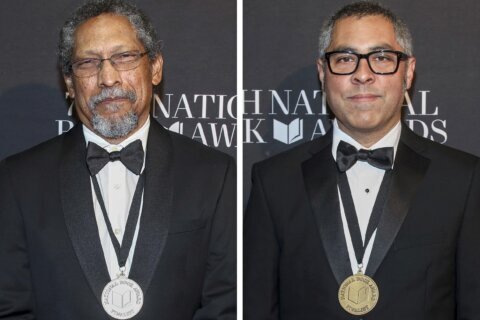In Anna Kendrick’s “Woman of the Hour,” a chilling, based-on-a-true-story drama about when a 1970s serial killer appeared on an episode of “The Dating Game,” one of the most telling images isn’t a grisly murder scene (though there are those). It’s Pete Holmes’ face.
Kendrick, making her directorial debut, stars as an aspiring actor named Cheryl Bradshaw who ultimately winds up a contestant on that particular “Dating Game” episode. Early in the film, she’s venting about her audition frustrations with a neighbor (Holmes) over drinks. After he makes an awkward pass, she recoils and he sits heavily, staring forward in disappointment.
The tension of those encounters, and how women are forced to handle, and suffer, the bruised egos of men, fuels “Woman of the Hour,” a sometimes awkwardly plotted but consistently insightful thriller about the anxiety of the female experience and the grim game of constantly weighing the threat of potential danger in men. The film begins streaming Friday on Netflix.
Kendrick, working from a script by Ian McDonald, opens “Woman of the Hour” with a scene in the remote foothills of Wyoming. There, Rodney Alcala (Daniel Zovatto) is playfully photographing a young woman (Kelley Jakle) but soon has his hands around her throat.
Though the film then shifts primarily to Cheryl taping “The Dating Game,” “Woman of the Hour” is interspersed with similarly gruesome encounters between Alcala and women. They follow a similar pattern. He’s charming and even sensitive, but turns violent at the first sign of rejection.
“Woman of the Hour” isn’t your standard true crime dramatization. The perspective of Alcala, who was convicted in 1980 of killing seven women and girls and died on death row in 2021, isn’t the one that matters here. It’s the women he targeted.
Kendrick’s movie might have been a better, more suspenseful film if it could have stayed in one timeline and teased all of the drama out of the “Dating Game” taping. But in unmasking Alcala from the start, “Woman of the Hour” becomes more about the horror of a killer who thrived out in the open, even on national television. We watch in dread at just how easily he blends in next to bachelor one and bachelor two — and even seems like the most appealing of the bunch.
When Cheryl is thrust into the showbiz swirl of “The Dating Game,” all of the sexist remarks and misogynistic underpinnings of the show appear only more sinister given Alcala’s presence. The host, a fictionalized Jim Lange named Ed Burke, is played with expert, flippant sleaze by Tony Hale. Kendrick keeps the camera on Cheryl’s face in the makeup chair while Ed, just before showtime, tells her not to act too smart. “I just need you to laugh and smile over and over,” he says.
Plenty more sexism is baked into the show. (One of Cheryl’s cue cards reads: “My favorite hobby is kissing.”) The juxtaposition of a serial killer of women with Hollywood misogyny adds a potent layer. (Kendrick has said an audition exchange early in the film about doing on-camera nudity is taken verbatim from her own experience as a young actor.) That’s particularly true when an audience member, Laura (Nicolette Robinson), recognizes Alcala as the man who killed her friend. Her attempts to warn producers are met predictably.
Though Zovatto’s performance is compellingly unsettling without being over-the-top, the dark, disturbed nature of Alcala is too much for “Woman of the Hour” to reckon with. This was a killer whose path of heinous violence included the rape and near-murder of an 8-year-old girl and the killing of a 12-year-old biking home from ballet class. The years of police and judicial failure that allowed Alcala to avoid imprisonment for so long are only hinted at here.
“Woman of the Hour” will surely send many looking up this stranger-than-fiction story. But Kendrick’s achievement is in capturing, from a woman’s point of view, just how hard it can be to pick a serial killer out of an all-male line-up.
“Woman of the Hour,” a Netflix release, is rated R by the Motion Picture Association for language, violent content, some drug use and a sexual reference. Running time: 94 minutes. Three stars out of four.
Copyright © 2024 The Associated Press. All rights reserved. This material may not be published, broadcast, written or redistributed.







